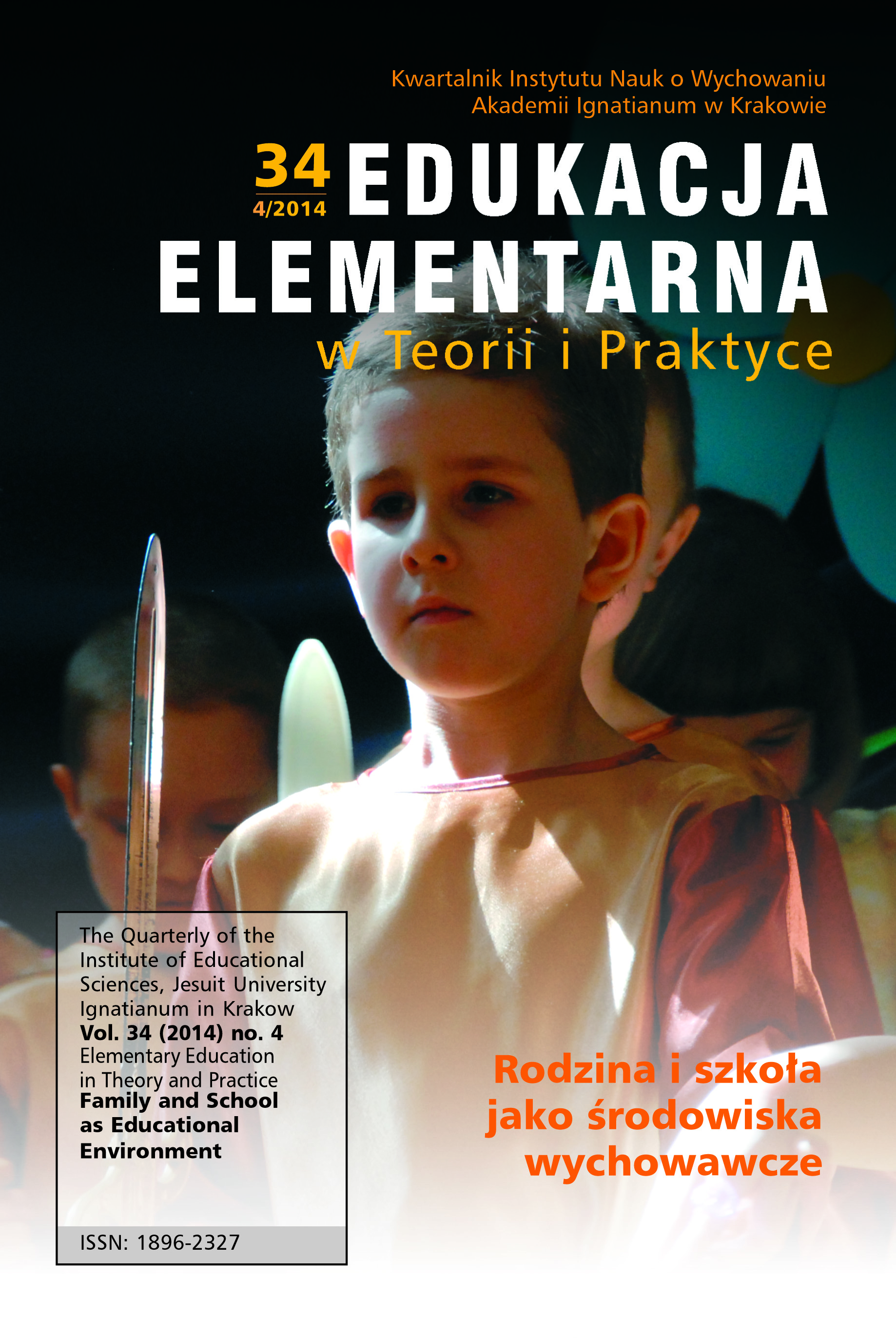Problemy wychowawczej współpracy na płaszczyźnie rodzina-szkoła w opinii studentów pedagogiki wczesnoszkolnej i przedszkolnej
The Opinions of Pedagogy Students concerning Problems of Educational Cooperation between Family and School at Pre-School and Early-School Levels
Author(s): Jolanta Walaszek-LataczSubject(s): Social Sciences, Education
Published by: Uniwersytet Ignatianum w Krakowie
Keywords: child–pupil; teacher–educator; parent; family; effective cooperation; pedagogy student's opinions; the importance of cooperation
Summary/Abstract: Nowadays, interpersonal cooperation is an indispensable element of human existence. It is endowed with many aspects, one of which is the mutual support taking place between teachers and their pupils’ families. Having been firmly rooted in valuable traditions, the teacher–parent paradigm – or, to put it more extensively, the school–family paradigm – has been firmly inscribed in the present practice of modern, democratized education. This article aims to present an empirical study which focuses upon pedagogy students’ (i.e. teachers-to-be) opinions and knowledge concerning the problem of cooperating with parents. Being focused upon the contemporary situation, the paper also constitutes an introduction to the substantive scope of a diverse range of issues concerning parent–educator cooperation. Since analyzing children’s most common school problems as well as attempting to prevent them serve the best interest of both the school and the pupils’ families, the very activity of emphasizing the importance of taking effective action in this field is critical, from both social and pedagogical points of view. Parents, who are in a position to spend more time with their children, can be considered a valuable source of information for educators. At the same time, teachers may (and should) assist parents by deploying their skills and knowledge in order to facilitate the upbringing process with respect to all aspects of our reality. Bearing in mind the fact that educators are very frequently the first to notice a child’s problem, an effective teacher’s role is to inform them about the issue and suggest relevant countermeasures. After all, both educators and parents share a common goal, which is the child’s well-being. When perceived from the perspective of children of younger school age, an effective circulation of information with respect to the aforementioned vital pedagogical environments is endowed with a fundamental significance for the child’s personal and societal development. In other words, it is imperative that future teachers are fully aware of the importance of effective cooperation within the contexts represented by the family–school paradigm.
Journal: Edukacja Elementarna w Teorii i Praktyce
- Issue Year: 9/2014
- Issue No: 4 (34)
- Page Range: 105-120
- Page Count: 16
- Language: Polish

